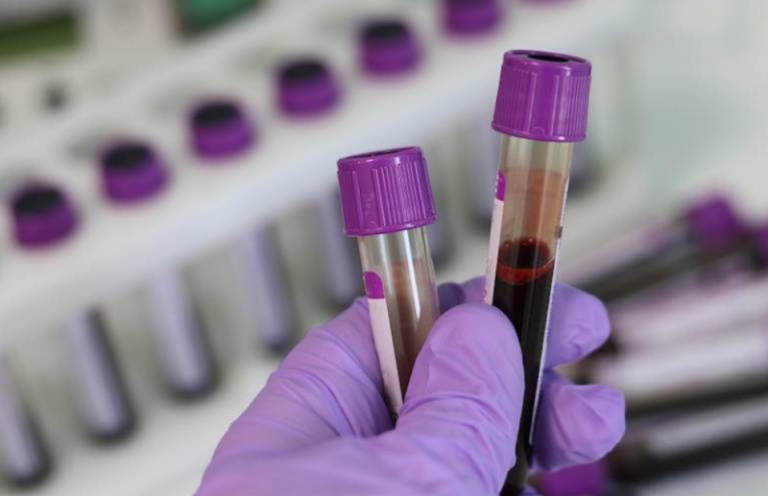Innovative gene therapy transforms the lives of people with haemophilia
UCL researchers have developed a single-dose gene therapy enabling people with haemophilia to produce missing clotting factors – removing the need for lifelong treatment and reducing healthcare costs.

12 April 2022
Haemophilia is an inherited bleeding disorder affecting 1 in 5,000 people, mainly men, and is caused when the body fails to manufacture one of two proteins needed for blood coagulation: factor VIII in haemophilia A and factor IX in haemophilia B.
Conventional treatment for haemophilia involves injecting the patient with clotting factor proteins derived from human blood or by synthesis every two to three days for life. The treatment is invasive, expensive, carries a small risk of infection from contaminated blood products, and is only available to 20% of the world’s haemophilic patients.
A pioneering single-dose gene therapy
A team from the UCL Cancer Institute, led by Professors Amit Nathwani and Edward Tuddenham, has pioneered a single-dose gene therapy. This allows individuals to produce the missing clotting factors and removes the need for any further treatment, transforming quality of life and reducing ongoing healthcare costs.
Professor Edward Tuddenham and his colleagues were the first to clone the gene coding for clotting factor VIII, providing the basis for transformative developments in gene therapy for haemophilia.
Focusing initially on factor IX, Professor Nathwani led an international collaboration with St Jude Children's Research Hospital in Tennessee to develop a method to deliver a replacement gene to cells in the body that could then produce the clotting factor protein. The delivery vector was a modified adeno-associated virus (AAV).
Multi-billion-pound R&D investments
Successful UCL-led clinical trials in small patient groups have been followed by at least six larger trials, led by pharmaceutical companies UniQure and Biomarin, who commercialised the technology platform. More than 300 patients with severe or moderate haemophilia continue to benefit following treatment. The first ten patients treated at UCL are still free from uncontrolled bleeding, up to ten years after receiving gene therapy.
The team’s pioneering research has also attracted multi-billion-pound investments by large pharmaceutical companies to new gene therapies for haemophilia and other genetic disorders. In addition, in 2015 Nathwani founded a spin-out company Freeline Therapeutics that has trialled an enhanced AAV vector and gene construct that returns Factor IX levels to near normal.
Freeline Therapeutics now employs more than 200 people in the UK, Germany and the US. Its therapeutic candidate uses a highly efficient viral vector to deliver the human factor IX gene to a patient’s liver cells. In July 2020, data from a Phase 1/2 clinical trial of 10 patients showed that Individuals in the highest-dose group sustained factor IX activity at 50-150%.
One patient with haemophilia who has received the gene therapy is 52-year-old John Konduros, from Ontario, Canada. He commented: “What I have experienced in the last three years is a factor level hovering around 40% and no bleeds at all, and nothing coming close to bleed. Some simple pleasures - not being so stiff in mornings, no limping and pain getting off airplanes or out of movie theatres, not worrying about how far away my fridge is, not having to bring treatments with me on out-of-town trips.”
Research synopsis
Developing, validating and delivering the first gene therapies for haemophilia
UCL research is transforming the lives of people with haemophilia, an inherited blood clotting disorder that causes uncontrolled bleeding and requires lifelong invasive treatment. The team at UCL’s Cancer Institute pioneered single-dose gene therapy that restores blood clotting. Clinical studies run by pharmaceutical companies including UCL spinout Freeline Therapeutics have benefited 300 people to date.
Links
- Professor Amit Nathwani’s academic profile
- Professor Edward Tuddenham’s academic profile
- UCL Cancer Institute
- UCL Faculty of Medical Sciences
- UCL Faculty of Medical Sciences REF 2021
Image
- Image credit: Pixabay/ Belova59
 Close
Close

